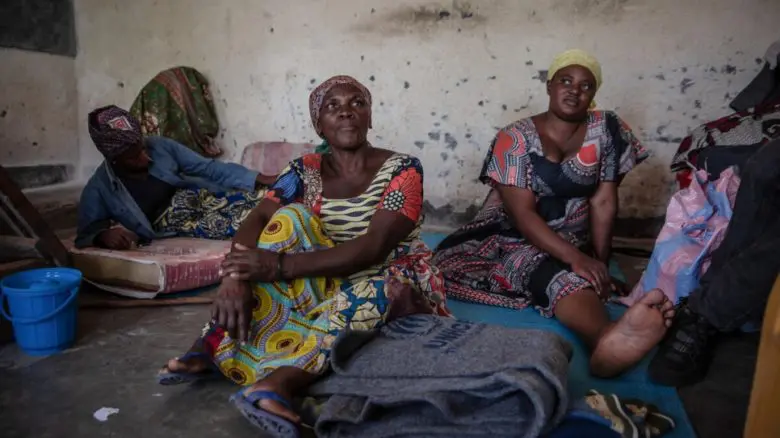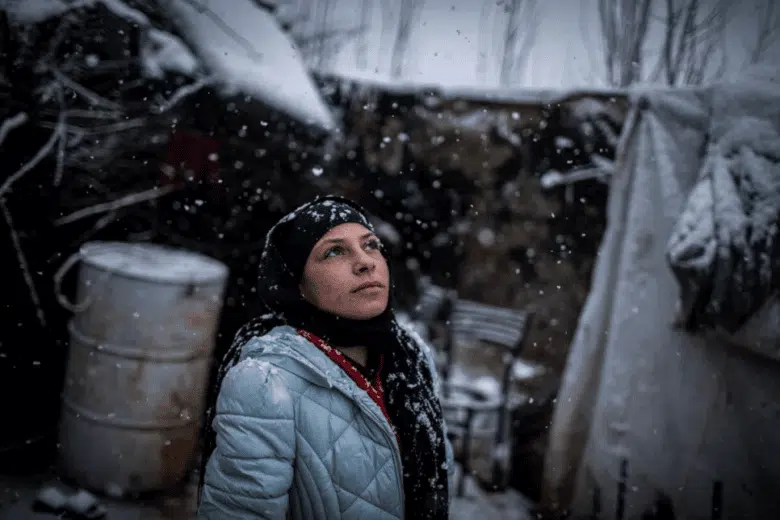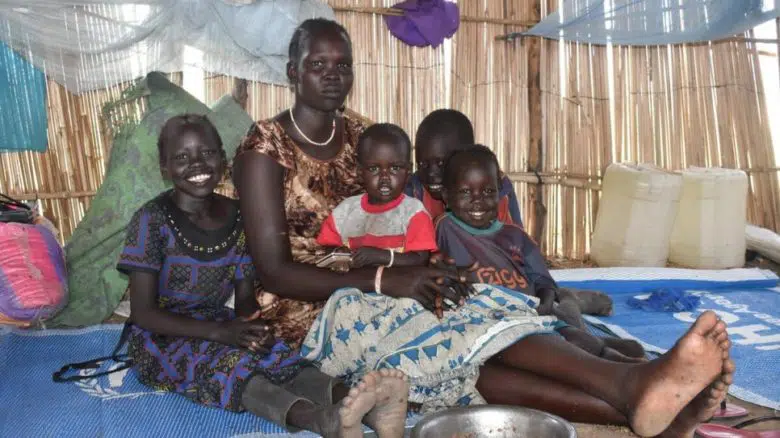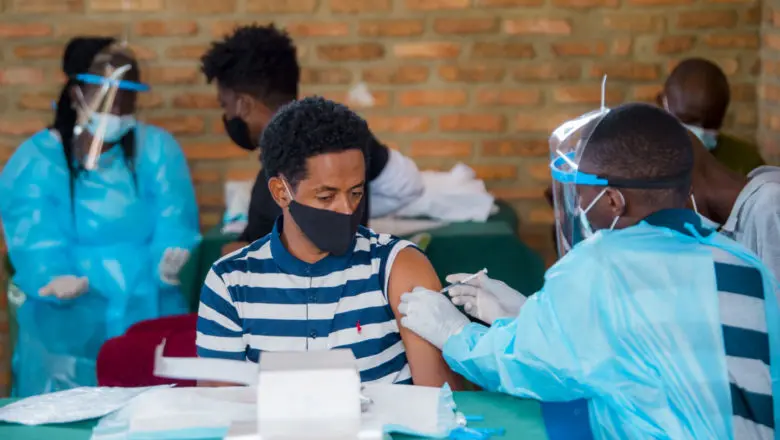
Juliene Bushashire (centre) fled Goma on foot with her 10 children and walked for two days to reach Sake. © UNHCR/Guerchom Ndebo
With today’s ultra-rapid news cycle, major emergencies can drop off the front page quickly, even as the situation escalates. Fading public awareness can lead to serious shortfalls in funding for relief programs.
Underfunding hits every area of UNHCR’s work, including providing the basics for survival. UNHCR’s Underfunded Situations Report identifies key areas of need that currently face major funding gaps.
You can make an important difference by donating to these critically underfunded crises today.
Why is Underfunding Such a Threat
Even if crises aren’t in the news cycle doesn’t mean they have gone away; it just makes things worse. It’s essential that we address underfunding in several humanitarian situations worldwides – not only to relieve suffering but also to prevent crises from worsening. Below, we’ve listed some of the other reasons why Underfunding is such a threat to the safety of refugees and internally displaced people.
1. Harmful coping mechanisms can keep people trapped
Refugees and internally displaced people may be forced to rely on harmful coping mechanisms to meet their daily needs, resulting in a negative cycle that keeps them trapped in poverty.
They may have to choose between food, housing, and medicine. Families might sell productive assets, like machinery or farm animals, and lose their ability to provide for themselves. Parents may pull children out of school to help earn an income, harming the child’s education and future prospects.
Looking after people’s basic needs has cascading positive effects. Even a small donation can have a huge impact.
2. Unaddressed issues can spiral into severe crises
Unaddressed needs can cause an emerging situation to snowball into a larger crisis, causing more damage and requiring more resources to solve than the initial issue might have.
By tackling underfunded crises earlier, we can provide immediate relief to affected people while also preventing a larger disaster from unfolding.
3. Avoiding the risk of a harmful ‘new normal
By allowing a crisis to drag on, we risk growing numb to the circumstances and allowing the suffering to continue as a ‘new normal’. We must avoid accepting any crisis as inevitable or hopeless, and instead recognize our individual and collective ability to create change and make a positive difference.
Your Support Can Make the Difference
Underfunded situations are not irredeemable. Your gift will have a real impact, whether your donation is for unrestricted use across UNHCR’s operations or targeted to a need that’s close to your heart.
You can also send gifts of hope representing resources, services and programs provided across our global network. Through UNHCR’s online shop, you can purchase school supplies for a student, cooking essentials and hygiene kits for a family, or training for a teacher.
Here are a few of the top underfunded situations that need your attention today.
Syria

A young Syrian refugee outside her home in an informal settlement camp in Beqaa Valley, Lebanon. © UNHCR/Diego Ibarra Sánchez
South Sudan’s displacement crisis remains the largest in Africa. Inside South Sudan, nearly two million people are displaced while outside the country there are now over two million South Sudanese refugees, mainly in Ethiopia, Sudan, and Uganda. Many fear imminent attack or struggle with food insecurity.
- $194 could provide learning material for teachers and students in Sudan.
- $124 could provide access to clean water for one year for an entire household.
- $65 could provide 5 displaced women and girls with a sanitary kit containing laundry soap, cleansing soap and sanitary napkins.
Donate towards the Syria situation
South Sudan

A South Sudanese refugee family sits inside a communal shelter after they were relocated from Alganaa camp. © UNHCR/Sylvia Nabanoba
South Sudan’s displacement crisis remains the largest in Africa. Inside South Sudan, nearly two million people are displaced while outside the country there are now over two million South Sudanese refugees, mainly in Ethiopia, Sudan, and Uganda. Many fear imminent attack or struggle with food insecurity.
- $194 could provide learning material for teachers and students in Sudan.
- $124 could provide access to clean water for one year for an entire household.
- $65 could provide 5 displaced women and girls with a sanitary kit containing laundry soap, cleansing soap and sanitary napkins.
Donate towards the South Sudan situation
COVID-19

A refugee receives his COVID-19 vaccination at the Gashora Emergency Transit Mechanism centre in Rwanda. ©Plaisir Muzogeye
While COVID is still rampant around the world, people are feeling fatigue and burnout from constant vigilance and concern. As a result, many areas of need are unmet.
- $3 could provide protective gear for a health care worker in refugee camps in Iraq, including a surgical mask, disposable gloves, shoes and a medical gown.
- $41 could provide a health worker in Burundi with a PPE kit, including N95 mask, five disposable gowns, 30 powder-free gloves and a pair of goggles.
- $154 could provide an emergency cash lifeline to a family hit by COVID-19 in Yemen.
Donate towards the COVID-19 situation
Make a Difference Today
When planning which charities to donate to this holiday season, please keep UNHCR’s most underfunded humanitarian operations in mind.
For a unique and meaningful holiday gift, make a donation in someone’s name or purchase a gift from UNHCR’s online shop. Your gift could provide refugees and other displaced people with essential items like solar lanterns, family tents, winterization kits, and more.
Every UNHCR holiday gift is a tax-deductible donation that directly supports forcibly displaced people.
Your gift makes a world of difference!


